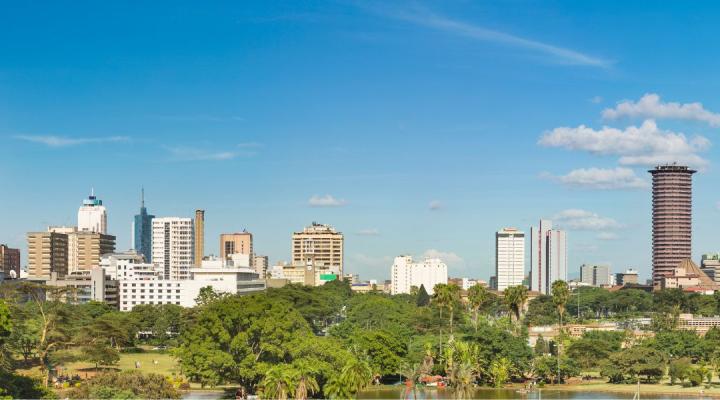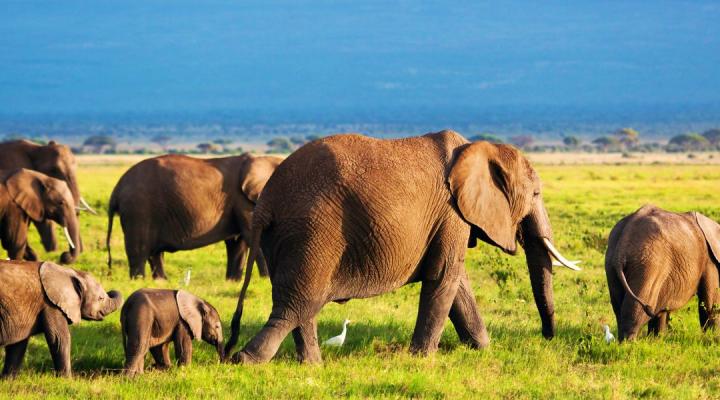By Adjoa Adjei-Twum, CEO, EBII Group.
Africa has a huge entrepreneurial heart. According to the UK's Department for International Development, 8 of the world’s 15 fastest growing economies are African. In addition, the IMF predicts that between 2018 and 2023, Africa’s growth prospects will be among the highest in the world.
If it can attract investment into its thriving SME the continent has the power to lift itself from financial dependency. However, it has the same problem as many emerging markets, according to the IFC, there is a $5 trillion financing gap for small to medium-size firms that is not improving. Furthermore, global financial markets tend to treat Africa as a homogeneously high-risk region, with no acknowledgment of the diversity of economies, geopolitical landscape, and level of socio-economic development within different countries.
The current adverse viewpoint of risk taken by global rating agencies, professional services companies, and other market players, often punishes African economies, resulting in expensive financing and a restrictive flow of investments into companies that, if fully funded, would have the power to transform those economies. While there are areas of risk to navigate, there is a case for savvy investors to achieve returns that more than compensate. This article explores some of the risk themes that investors, seeking to invest in the continent, would encounter.
The basics for emerging market investors
Similar to Asia and the Americas, Africa does not have laws, customs, and conditions that are universally applicable. West Africa, particularly Ghana and Nigeria, has a legal system that is reflective of the UK legal system and as such, UK investors are more likely to invest in its countries rather than, say, Mozambique, which has a mixed legal system of Portuguese civil law and customary law. The language barrier is also another critical hurdle, and as such, English speaking African countries represent a more accessible entry point for UK investors.
Underpinning any investment decisions should be a clear understanding of the risk and compliance profile of the proposition under consideration, and this will be a critical catalyst to further growth and scale. As such, there is a significant need to address risk by highlighting that the right compliance framework is key to successful investment. Undertaking the due diligence is critical to success in a dynamic Africa, and is the key to unlocking the region’s potential, growth and opportunities. Let’s explore some of these significant risks that need to be addressed if one is considering an investment in Africa:
1. Financial exit risk
Investment returns come in the form of dividends or capital gains. A majority of African economies have volatile currencies and to protect them, governments sometimes institute laws that create barriers for capital repatriation. Of course, an inability to repatriate funds to investors has an impact on the investment happening in the first place. Furthermore, to realise capital gains, there must be an active secondary market in which to appropriately price assets. In Africa, with only a handful of stock exchanges that are moderately active, it is often challenging to exit investments and usually private placements are the most apparent way to go. These are expensive, however, and prices are often the result of negotiation as opposed to market forces.
2. Political environment
Where the investment destination country is undergoing an election year, there is often disruptive protest, unrest, and prolonged political uncertainty in some African nations. For example, Nigeria, Kenya and South Africa have experienced political risk in recent elections. Where the investment is connected to government, this can be particularly disruptive. As part of the due diligence process, investors must consider how political stability, government management, policies, and the individuals who are likely to impact the investment might change. There is also a risk that some regulations or contracts governing an investment may alter. Investors should always undertake upfront due diligence, such as country risk assessment, including measuring the country’s current performance against past performance and that of other similar countries. Again, there is no 'one size fits all' solution.
3. Economy
Infrastructure in many African countries is still a work in progress and can present particular challenges to investors. Specific economic conditions include services such as electricity, water, and transportation. Extra effort is usually required to ensure these, and other essential services are in place. The World Bank estimates that the infrastructure gap can reduce productivity by approximately 40%. LINK to. Despite all these infrastructure challenges, some businesses are thriving. Sonatrach’s turnover from oil and gas was $39 billion in 2018 and MTN Group’s turnover was about $10.2 billion in 2019. Africa’s economic growth prospects are massive. Investors can consider the infrastructure challenges as real-market opportunities for investments and growth.
4. Legal systems
West and Central African countries companies are governed by OHADA laws. OHADA was created as a solution to the economic crisis and the fall of investment level in Africa in times past. Legal and judicial insecurity were identified as major causes of investor distrust. The purpose of OHADA law is to streamline the legal environment of companies in order to guarantee legal and judicial security, with a view to stimulating investment. However, the enforceability of these laws tends to be less stringent. Where business activity is in the extractive industry, one will need to do due diligence around land title rights as in most African countries, land tends to be owned privately, either by families or by tribes.
5. Culture
As an investor, it will be difficult to create a successful business without understanding how African cultures differ from Western society. Investors need a sufficient amount of time and patience to navigate successfully. Africans, by nature, tend to move at a slower pace than individuals in Western cultures because most business relationships are based on trust.
6. Local knowledge and networks
Strong local relationships play a huge role in a business’s successful integration and growth on the continent. Foreign investors must be on the ground to conduct the due diligence. Conducting this due diligence virtually, on an African entity, does not produce accurate results. As an investor it is also advisable to secure assistance from local advisors in order to effectively understand the bureaucracy and regulations. It will be extremely difficult to make progress otherwise.
Undertaking the required due diligence as an investor is therefore key to increasing the effectiveness of investment spending and success in a dynamic Africa.
Background
EBII Group is an Oxford University innovation-backed Africa-focused risk management organisation committed to connecting Africa to the world. They provide services aimed at helping businesses work with or partner with African entities where complex and unique compliance challenges exist. They leverage risk management and compliance to accelerate investment, trade and economic development across the African Continent.
At Saïd Business School we are investing in Africa and supporting the next generation of African leaders. Learn about the Oxford Saïd Africa Initiative.



